‘Just what will be torched next?’: Woollahra locals react to anti-Semitic attack
The peaceful suburb of Woollahra has twice been targeted in anti-Semitic attacks. Amid a sense of weary anxiety, locals say they are trying to stay strong.
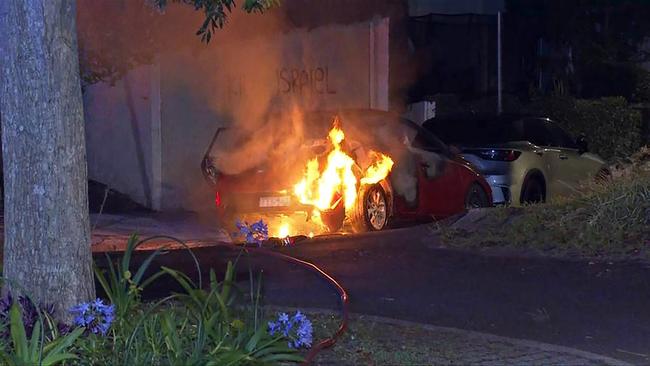
A burnt-out car in a Sydney suburb. At any other time, in any other area, it would be a mildly alarming and inconvenient property crime. But this blazing vehicle abandoned in the peaceful streets of Woollahra in the city’s east, alongside a misspelt spray-painted message “Kill Israiel”, is freighted with meaning as yet another symbol of hate. A threat.
How else are Jewish residents who scrambled from their beds in the early hours of Wednesday, alerted by multiple fiery explosions, expected to see this latest incident coming days after the firebombing of a synagogue in Melbourne’s southeast and weeks after multiple cars were burnt and buildings defaced with anti-Israel graffiti in the same suburb?
“What’s next to be torched … hopefully not a human,’’ said one Jewish man, venting his frustration at the escalation in anti-Semitic activity in Sydney and across the country.
Political leaders rallied on Wednesday to condemn what NSW Premier Chris Minns said was a “racist attempt to divide our city’’ and what independent MP Allegra Spender described as a crime intended to send fear into the community.
Anthony Albanese, visiting the Sydney Jewish Museum a few kilometres from the Woollahra attack, said it was clearly anti-Semitic and “completely abhorrent to who we are as Australians”.
Liberal senator Dave Sharma attended the neat, tree-lined street as police combed the area and workers cleaned off “Death 2 Israiel” and other graffiti sprayed on houses and the footpath.
“This is not simple vandalism,’’ Senator Sharma said. “This is violence designed to intimidate and menace a particular community and make them feel unsafe in their homes for a political objective.
“That has all the hallmarks of terrorism.”
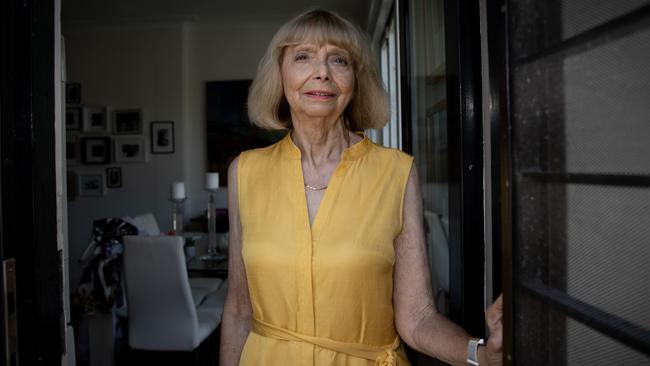
Residents spoke of the explosions from the car fire that woke them in the night, and the worry that vegetation might catch alight.
Police believe the stolen car was taken to the scene and set alight by the offenders.
“There were about eight explosions. I looked out the window and the flames from the car were just … that’s when I thought if the trees go, the houses go,” said neighbour Jo Poyter.
Local Jewish mother Michelle Gold said her children glanced out the window over breakfast and thought they were looking at a film set. “I looked out the window and said ‘I don’t think it’s a movie’.
“How do you explain it to your children? You can’t, because it’s inexplicable,’’ she said.
Meanwhile, there was a sense of weary anxiety in the broader Jewish community as their screens filled with imagery of the burning car and anti-Semitic graffiti.
The Emanuel Synagogue is a 10-minute walk from this latest attack in a suburb with a sizeable Jewish population. Constructed in 1941, it has a proud history of being built at a time when so many synagogues were being destroyed in Europe.
Senior associate Rabbi Jacqueline Ninio has been at the synagogue for 26 years and never imagined her community would live through what it’s experiencing now.
It’s not just the dread that accompanies each day’s headlines – she speaks of the constant wear of hyper-vigilance, the pain of having to think hard about whether it’s safe to wear a Star of David, and of worried parents counselling children to hide their symbols of Judaism for their own safety.
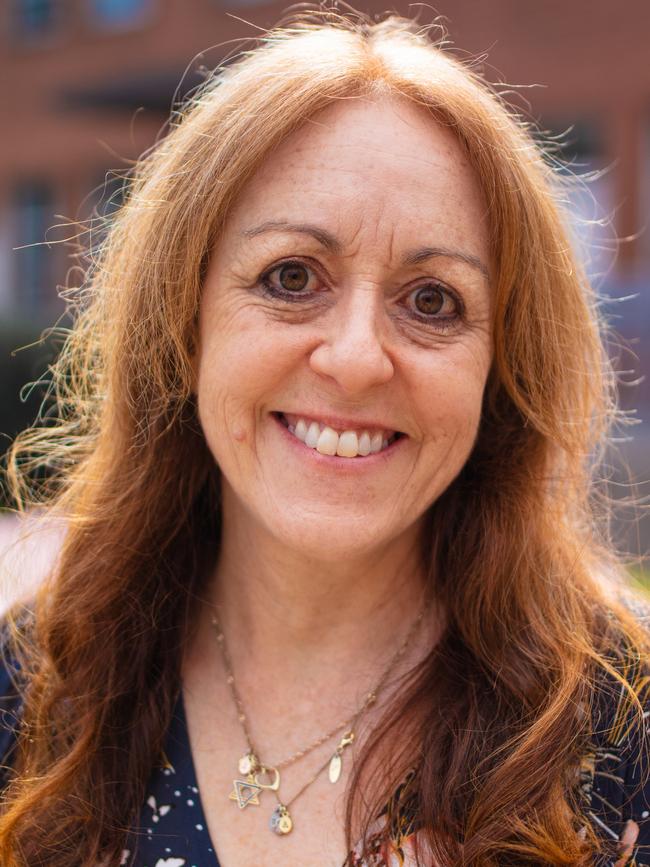
“There is a real sense of fear that these things are happening in the streets and around our synagogues and our places of prayer and worship,’’ she said.
“But there’s also a determination and a sense of resilience from the community that this is not going to change us.
“We are going to continue to stand and be strong, proud Jewish people living in Australia.’’
While others spew hate, she leans on hope. She speaks of the messages of support her community has received from other faith leaders and regular Australians.
“We see these words of hate but it has led to some beautiful words of love,” she said.
“We’ve had some incredibly beautiful messages from the community around us and beyond the neighbourhood and we’re really trying to hold on to those.’’
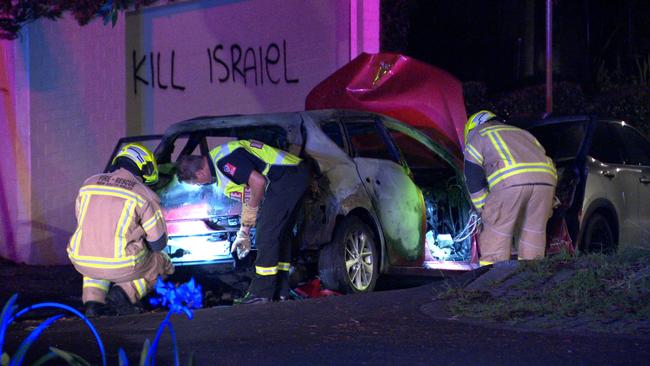
Rabbi Ninio was at a prize-giving event at a Jewish school on when she heard the latest news.
She’s a mother and she looks at the children living through this time of hateful slogans, online racial abuse and outright anti-Semitism.
“That’s the worst part of all of this, that our children can’t go to school without walking past security guards and at certain times police, and having to explain to them that they’re there to protect them and to keep them safe,” she said. “That should never happen.
“We don’t want our children to be frightened and we don’t want them to believe that this is what our country is. We have to work very hard to balance the safety and protection that unfortunately we need right now with the notion that it’s a small minority of people, and that our neighbours and our friends and all these other people that we know are not trying to cause us harm.’’
It’s an issue that weighs on Avishai Conyer, 22, the head of youth and young adult engagement at Emanuel Synagogue. Beyond the attacks that make news headlines, he speaks of the reality of being a young person who is visibly Jewish.
“I wear a kippah and over the last few months have been yelled at more times than I have in my entire life, just for being visibly Jewish. And so there is definitely a sense of fear and vulnerability that is existing across the spectrum of Jews at the moment,’’ he said.
He’s had coins thrown at him, been cursed for being a Jew. “And I have friends who have literally been kicked out of their share houses, and others who have had experiences with random strangers on the streets.
“There isn’t a problem just in the big anti-Semitic acts but in the everyday culture of what is and isn’t acceptable.’’
His experience was echoed in a report by the Executive Council of Australian Jewry, which found a steep increase in anti-Semitic activity, not just in the streets but in schools as well.
One year 10 student in Sydney was told to “Go back to the gas chambers” by a student who performed a Nazi salute in class and used Hitler and swastika symbols on Google classroom.
Hateful graffiti appearing in public places – “kill Jews, f..k Jews” – is almost commonplace.
Mr Conyer has a simple formula for helping young Jewish people deal with it all.
“The biggest response is to just create a space to process the emotions we’re all feeling and be with people who are similarly confused about what’s happening. There’s a need to be together and cry together and share together and hopefully grow some hope together,’’ he said

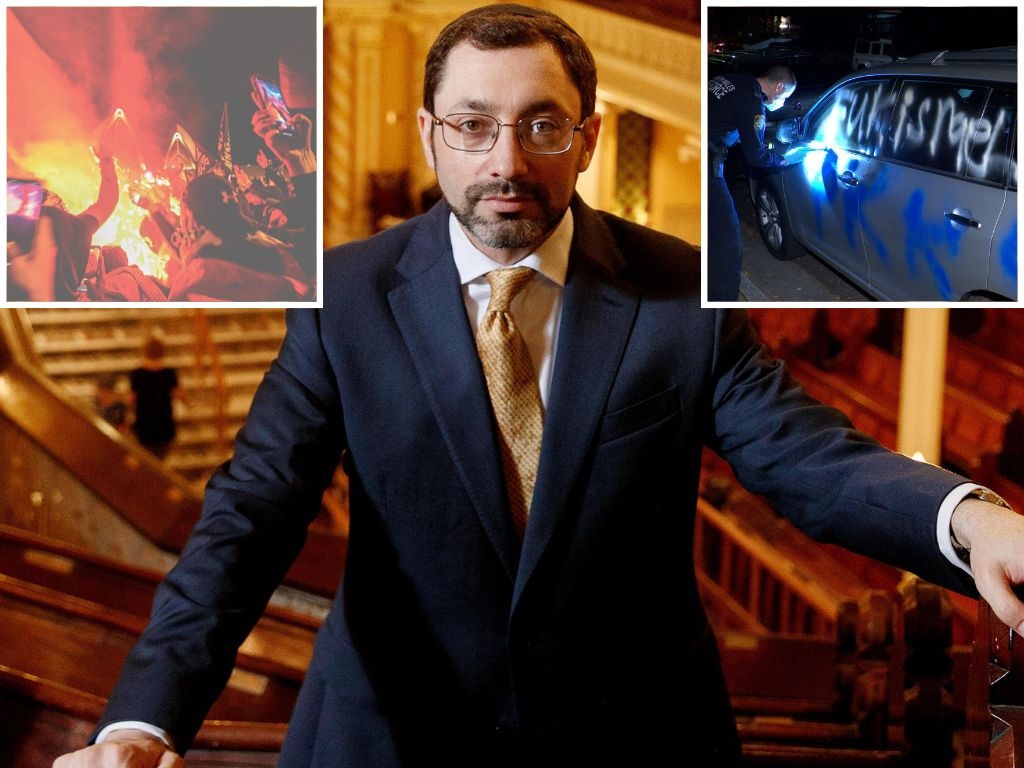
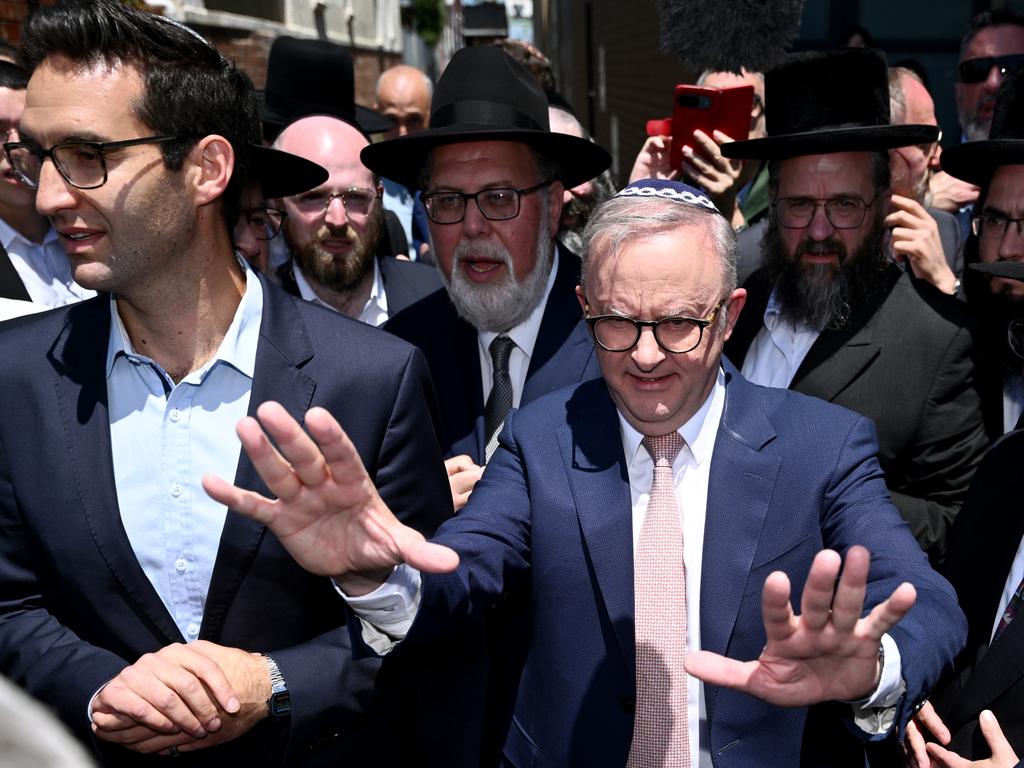



To join the conversation, please log in. Don't have an account? Register
Join the conversation, you are commenting as Logout